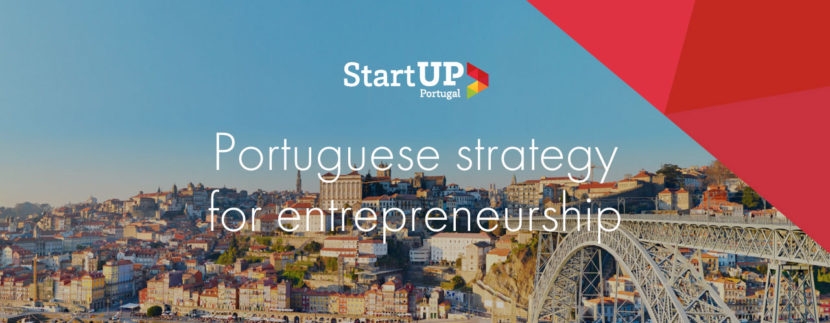Record year for business ideas

Widely defined as a “business that is typically technology-oriented and has high growth potential” – a definition coined by the U.S. Small Business Administration – the term ‘startup’ is an expression that spread like wildfire during the explosion of the dot.com era.
A new report conducted by Lisbon-based business management consultants Informa D&B released this week, revealed that over 35,500 startup companies were established in Portugal in 2015; the highest number to date.
According to Informa D&B’s ‘Entrepreneurship 2007-2015’ report, between 2007 and 2015 an average of 31,000 companies were set up each year, equalling a total of 309,500 companies and other organisations founded over the nine-year span in question. This is an average of 34,000 new ventures a year.
The report further indicated that between 2008 and 2012 there was a drop in the number of startups created, with the exception of 2011, “when the possibility of setting up companies with minimum capital of 1 euro drove their creation.”
However, 2013 “began a new cycle of expansion and 2015 (with 35,555 startups) was the best ever year for entrepreneurship in Portugal.”
And it looks as if 2016 could be set to follow suit, after the government launched a set of 15 measures designed to support startups in Portugal earlier this year.
It was, Economy Minister Manuel Caldeira Cabral said, part of the government’s pledged priority to back new, tech-savvy ventures and “potentiate those that already exist.”
According to Portuguese startup news site Startups.com, which reports latest news from the national sector, “Portugal is a booming ecosystem with an ever-growing number of innovative startups, business angels and investors.”
The ‘Start Up Portugal’ programme is, according to Startup.com, “aimed at supporting startups and increasing their success rates, further developing the economy in the country and boosting job creation.”
“The survival rate of startups in Portugal is still low when compared to other European countries. But Portugal is rich in talent, education, infrastructures and technology” the website reflects.
The government-created Start Up Portugal’s official website, startupportugal.com, elaborates: “Startup Portugal is the Portuguese Government’s strategy for Entrepreneurship.
“More than fostering an entrepreneurial spirit, it aims to support those who are already entrepreneurs, ensuring the longevity of the companies created and increasing the impact they have on job creation and economic value. It intends to organise, free up and promote the sharing of benefits, best practices and resources, identifying regional and sectoral flaws and filling gaps.”
Devised as a four-year plan, the programme focuses on three areas of operation: Ecosystem, funding and internationalisation.
Its introductory page states Portugal is “a country rich in talent and diversity” and adds “public investments made in the past decade in education, infrastructures and technology pave the way for those wanting to start or invest in a new business.
“With one of the most vibrant entrepreneurship ecosystems in Europe, Portugal is a top destination to create, test, fail fast and try again”, it concludes.
Speaking at the launch of StartUp Portugal in June, Minister Cabral said “Startup Portugal is based on the idea of connecting what already exists. We are not inventing startups nor entrepreneurship.”
Prime-Minister, António Costa added the programme will make Portugal “the friendliest country in Europe for entrepreneurship.”
In comments to The Portugal News, Marta Miraldes, Vice President of Finance at the StartUp Lisboa association, said “Portugal has always been a country of entrepreneurs with high rates of development of Small and Medium-sized Enterprises (SEMs). The main problem has been in their survival, given the particularly high mortality rate [of new ventures] within the first five years.”
Self-described as the capital’s ‘top business incubator’, StartUp Lisboa supports the creation of companies and tracks their first years of activity. It was founded in 2011 by the Municipality of Lisbon, Montepio Bank and the Portuguese Agency for Competitiveness and Innovation(IAPMEI).
Ms. Miraldes adds: “Recent years, particularly 2015, have seen a very positive evolution of the Portuguese entrepreneurial ecosystem that is due to the consolidation of several players, particularly in terms of incubation and investment, along with government policies (such as the Startup Portugal programme) which are supportive to the establishment of startups and to combat mortality rates of existing companies.
“On the other hand, the profile of domestic entrepreneurs is now more qualified, because it is a new global generation (with international experience, in many cases).”
Marta Miraldes believes 2016 will see “a strengthening of this trend, especially with the contribution of Portuguese technology companies like Uniplaces, Talkdesk, Farfetch and WeDo technologies, among others, which are today references for the entrepreneurial community.”
BY CARRIE-MARIE BRATLEY, IN THE PORTUGAL NEWS · 25-08-2016 14:04:00
